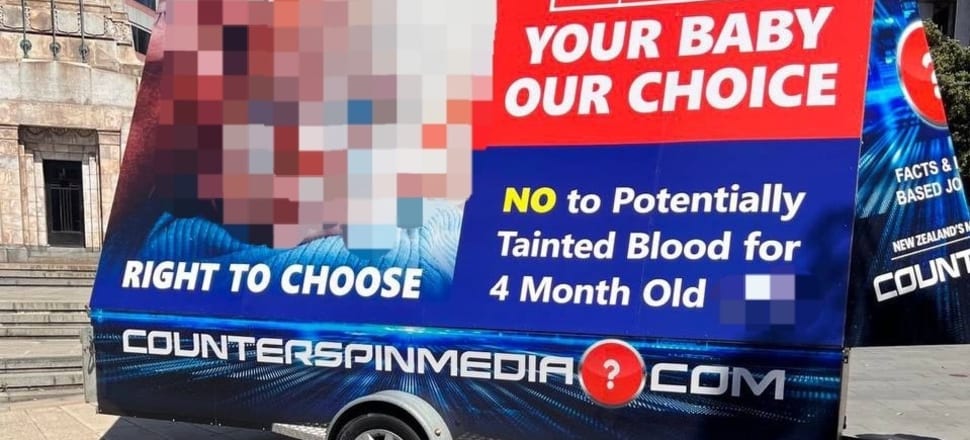
The anonymity and border-crossing nature of the internet poses new challenges for the enforcement of name suppression orders in New Zealand, Marc Daalder reports
Conspiracy theorists gathered near Parliament grounds on Tuesday for the first of three days of protest over a range of legislation and the recent court ruling that allowed a baby to have lifesaving heart surgery over the opposition of his anti-vaccination parents.
While signage and speakers at the small protest repeatedly violated court orders suppressing the name of the baby, just a few hundred metres away Justice Minister Kiri Allan conceded the struggle in enforcing such orders.
"You've certainly identified one of the challenges that we have with name suppression and the way that it operates in an electronic domain," she told Newsroom. "These have been issues that I think have been considered in a number of contexts."
READ MORE: * Compromise needed for baby, not 'vaccinated blood' row outside court * Aimee Milne: My blood is your blood
Allan said more could be done to investigate these breaches in the real world, but the spread of violating content online was more challenging to regulate.
"With respect to those that are publishing those names, I think there's certainly a case to be made to investigate into and lock it down."
After overseas media outlets published the name of the man accused of killing British backpacker Grace Millane in late 2018, then-Justice Minister Andrew Little took a proposal to a Commonwealth ministerial group to create mutual recognition of other jurisdictions' suppression laws. Allan said she had re-tabled that proposal in a recent meeting.
"All of us are working together on that."
Mark Mitchell, the National Party's police spokesperson, said people should follow the order and police should look into breaches.
"If there's a court order in place, making sure that the baby's identity is suppressed, they should be adhering to that and be compliant," he said.
"The police always have discretion but they should be looking at it without a doubt."
In addition to the protesters, high-profile individuals on the conspiracy fringe have repeatedly named both the baby and his parents online. Liz Gunn, a well-known conspiracist who has become a de facto spokesperson for the family, urged Stuff to name the baby in a response to a story on the saga.
Counterspin Media, whose owners are currently facing prosecution for allegedly disseminating links to the March 15 terror attack footage and which briefly breached the name suppression orders around New Zealand's first sabotage case, has also named the baby in online posts.
In the end, Allan said, the actions of the protesters were despicable regardless of whether orders had been breached.
"We're dealing with the life of a young child who cannot speak for themselves. Politicising the life of an innocent child, it's wrong at every single level," she said.
"The broader issue here is that people are exploiting that young child's life for political gain and it needs to be called out by broader society in addition to any of the name suppression orders that are in operation."
About 20 people turned out to the first day of protest in Wellington. They gathered at the cenotaph near Parliament so as not to disturb the celebration of the Black Ferns which also took place Tuesday. Several vehicles parked on the memorial were ticketed by parking enforcement officers.
The second day of protest is scheduled to take place on Parliament lawn and will supposedly involve a bouncy castle.







